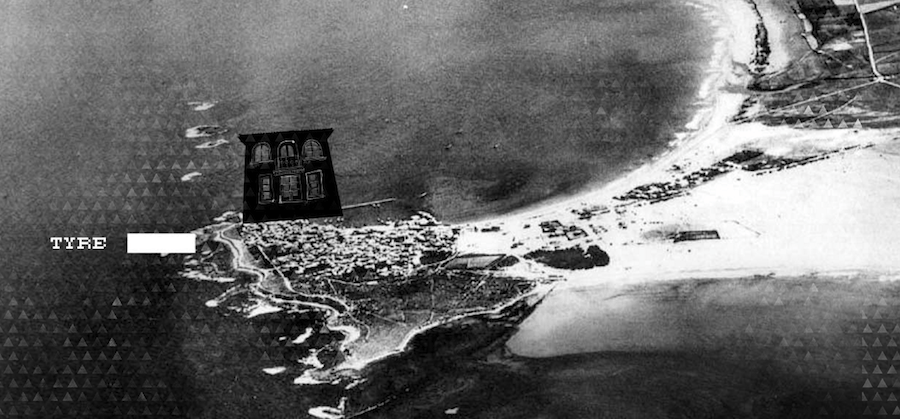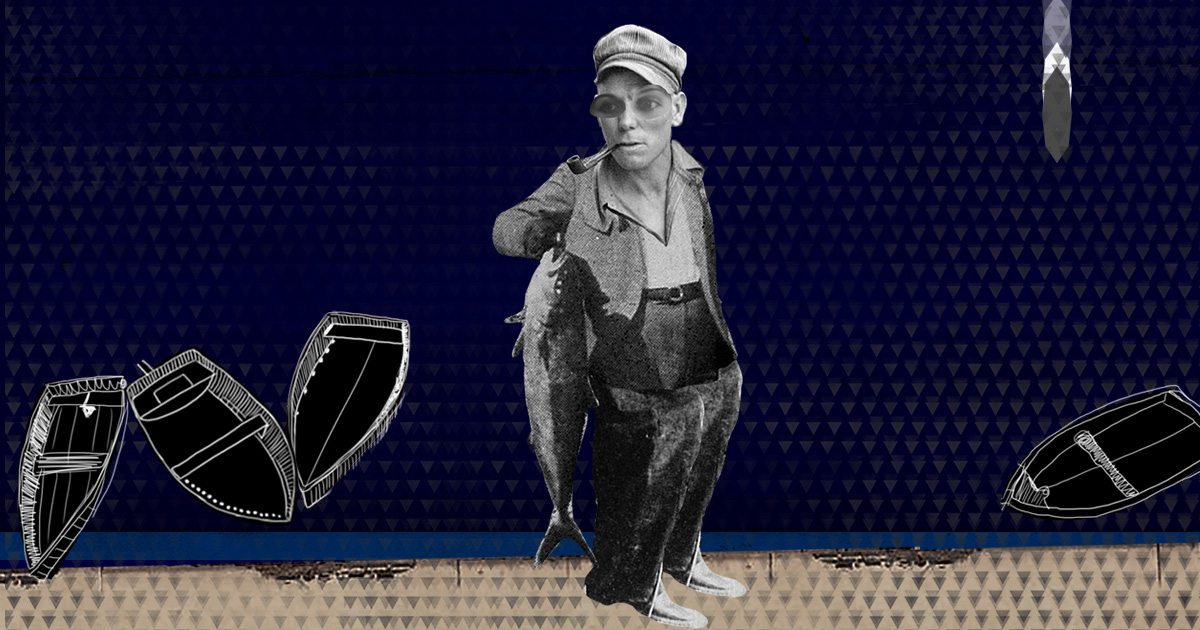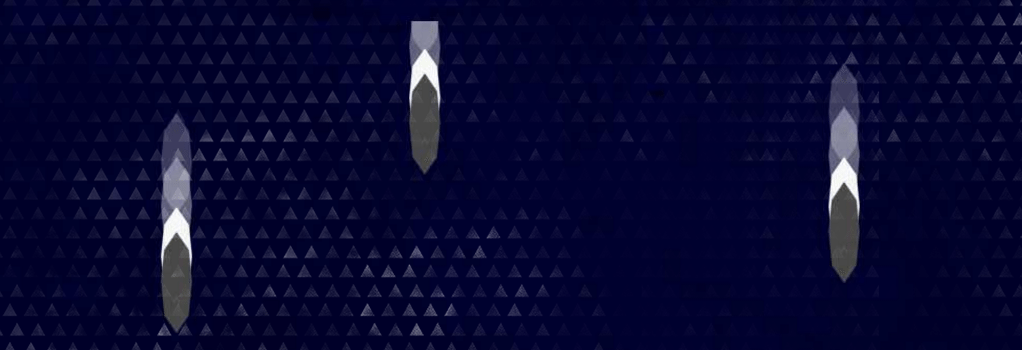Boat over troubled water
Tyre’s nautical wonderland has ebbed and flowed throughout its centuries-long history. This is a story about its contemporary fishermen and how the Israeli occupation interrupted their seafaring ways, sometimes rerouting them towards deadly results.
A majestic Ottoman-style villa stands at the end of the port. From a distance, it seems to float on the sea, gracefully composed despite the raging waves. Nearby, fishermen gather around weathered wooden tables. Some slumped on their chairs, languidly, while others gesticulate to one another wildly. They watch over the men on duty; there are those who patiently sew their nets in a patch of shade, those who band with other men to dock their felukas and those who quietly navigate their way out to sea. They are men of all ages, and there’s not a woman in sight.
Tyre’s port feels like the Mediterranean port towns rendered and stylised by the likes of Fellini or Angelopoulous in the 1930s-50s – its men and stone houses caked in sunlight, the fishermen’s movements appearing both disjointed and choreographed. Its simplicity belies its rocky history, and its community finds a metaphorical counterpart in the villa, valiantly facing attacks from the sea that have threatened to tear it apart.

I have always been drawn to Tyre, because it imparts the distinct feeling that this was a place that set itself apart from the rest of the country. Before the British and French came along with guns and double-dealing cartographers, Tyre was part of the northern Palestinian district of Akka, a coastal area renowned for its historic fishing trade. In ancient times, Tyre was an island, and after Alexander the Great burnt it to the ground, it was sunk by an earthquake. For the vast majority of its history, Tyre belonged to, or gravitated greatly towards, the sea. And throughout modern times, the fishermen’s nautical wonderland has continued to ebb and flow.
I ask to speak to the oldest of the fishermen, a vessel of Tyre’s marine history, so to speak. “No Ammo, I cannot speak to you,” says the man who I was directed to.
“See this man sitting in front of me,” he gestures to a younger man across from him.
“He’s been my close friend for years. I can’t even talk to him about what I went through.”
Dejected and somewhat embarrassed, I walk away from the coffee shop and wander towards the other end of the port. I had meant to ask the older man about his marine itineraries before the southern borders were closed in 1948, and then about how his travels might again have been affected by Israel’s occupation of South Lebanon (1978-2000). But he believes that the Israelis still have ears in the port, and he does not wish to be incriminated against for memories he could only describe as “horrors.”
“Oh madam, it was the worst of times. We were subjected to complete humiliation and violence,” says Khalil Taha, fishermen’s union chief of South Lebanon, from his dank office on Tyre’s tiny anchorage.
Israel’s occupation of South Lebanon’s sea, he tells me, preceded its occupation of the land by five years. “In 1973, Israeli boats began to appear, telling us where to go and where not to go,” he says.
Quickly, the situation escalated. A fisherman who had the misfortune of coming across an Israeli ship could expect the worst. At best, they would simply be told to turn back. Many times, according to the fishermen, the Israelis had a sadistic routine. They gratuitously destroyed their nets, and then, ordered them to strip down and jump into the sea while the Israelis boarded the boat, ostensibly searching for weapons. Many were shot at without warning.
He tells me that the fishermen of Tyre’s port only ever ventured 500 metres from the shore, despite Lebanon’s territorial waters spanning eight kilometres. And even this, only during the day. The night time saw them forced to stay in the port and seek the safety of their houses. A Tyre with no night fishermen is difficult to imagine, given that the sea is lit up with dinghies now, like stars sparkling at eye level.
Hassan Tahhan enters the room and reveals the scars of bullet wounds on either side of his neck. When the attack happened, he was fishing two kilometres off the coast of Rashdiyyeh, an area just south of Tyre (now known for the Palestinian camp perched off its coast). Night was beginning to fall when seemingly out of nowhere, the sound of a whizzing bullet transformed into unbearable pain. Tahhan was shot through the deltoids, barely escaping death. His shipmates who had ducked for cover, frantically returned him to the port, where he was rushed to the American University Hospital of Beirut.
“That was the worst of many of my encounters with the Israelis,” says Tahhan.

Taha, it turns out, has several stories of his own, one of which ironically forced him to go on a marine route traversed by his forefathers many years before. At the age of 19, while he was fishing out of Asmieh with his father, an Israeli boat approached. Both men were told to strip naked and jump into the sea. After searching the dinghy, the Israelis summoned father and son aboard the military cruiser. Handcuffed and covered in blankets, the two were taken on a five-hour journey to Haifa, where they were thrown into an Israeli jail and interrogated and tortured for 48 hours.
Taha says that “half” the port has been to Haifa because of incidents like this.
The waters between Lebanon and historic Palestine are known as the “golden shores”; more bountiful in fish, it is said, and better in quality than most places on the Mediterranean coast. “It’s a known fact that if you were to fish in Tripoli, your catch will rot by the time it gets to Beirut. But if you get your fish in these parts, it will arrive to Beirut as good as new,” says Tyre Mayor Hassan Dhein.
This was reason enough to keep roughly 400 fishermen in Tyre throughout the occupation. And it was also enough to tempt several Tyre-natives to tread illegally into Northern Palestine’s waters as recently as the 1960s, anchoring near az-Zeeb, where the waters were said to be the most pristine. Prior to Israel’s creation in 1948, many of Tyre’s fishermen applied for licenses from the British imperial office to enter Palestine’s waters.
Nowadays, many luxuriate in the absence of the Israelis off the coast of Naqoura, where large metallic balls demarcate the border with the waters of historic Palestine. But Israel’s withdrawal in 2000 was not without incident for the fishermen.

In October 2005, 16-year-old fisherman Mohamad Farran went missing. The Israelis returned his bullet-riddled jetty soon afterwards. Lebanon’s government accused Israel of abducting Farran; Israel has denied responsibility, claiming that his boat, covered in bloody markings, approached Israeli shores unoccupied. The Israelis then proceeded to shoot at it, thinking it was booby-trapped.
On the port of Tyre, Farran’s story haunts the fishermen. “It’s a mystery really. We pray to God that we can bring him back safely,” says Dhein.
In 2006, Israel waged a 33-day war on Lebanon in an attempt to root out Hezbollah fighters. Tyre’s port, enduring repeated aerial and naval bombardment, came to a complete standstill. After a cease-fire agreement was reached in August 2006, the southern fishermen’s universe shrunk once again.
Lebanon’s territorial waters, where the fishermen are legally able to traverse, was reduced by 20 percent according to UN Resolution 1701, which ended hostilities between Israel and Lebanon.
Abu Robert, known in Tyre for the succulent shrimp he offers guests at his restaurant, Sidewalk Number 11, pines for the old days. Back then, he says, the trade was as much about craftsmanship as it was about fishing. He says he got his “real” training in the 1940s, when he and his father would row across from Adloun to Naqoura in a non-motorized wooden boat, setting up camp and fishing for days. Fish stocks have declined steadily since then, he claims, because fishermen were ill-prepared for the challenges ahead.
“There’s an old saying around here, ‘those who don’t fear God, should fear the sea’. This could not be more true,” says Abu Robert.






